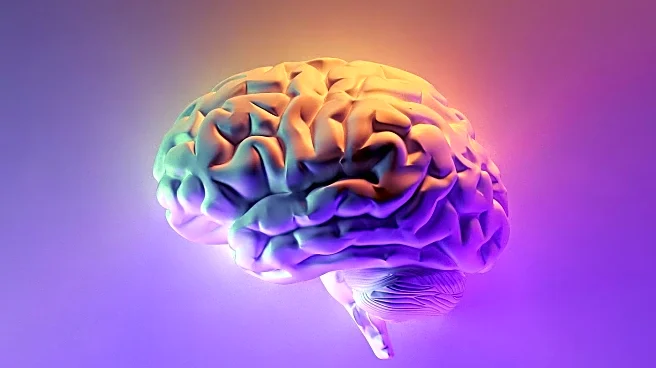What is the story about?
What's Happening?
Researchers at Scripps Research have identified a specific brain circuit that plays a crucial role in alcohol addiction relapse. The study, published in Biological Psychiatry: Global Open Science, focuses on the paraventricular nucleus of the thalamus (PVT) in rats. This brain region becomes more active when rats associate environmental stimuli with the relief of withdrawal symptoms through alcohol consumption. The findings highlight that addiction is driven not only by the pursuit of pleasure but also by the need to escape the stress and anxiety of withdrawal. This discovery could pave the way for new treatments for substance use disorders and other maladaptive behaviors.
Why It's Important?
The study's findings have significant implications for understanding and treating alcohol addiction, which affects approximately 14.5 million people in the United States. By identifying the brain circuits involved in addiction, researchers can develop targeted therapies to disrupt the cycle of withdrawal and relapse. This research also sheds light on the broader mechanisms of addiction, which could inform treatments for other disorders characterized by negative reinforcement, such as anxiety and fear-conditioning. The potential to develop new drugs targeting these brain circuits could revolutionize addiction treatment and improve outcomes for millions of individuals.
What's Next?
Future research will focus on expanding the study to include female subjects and exploring the neurochemicals released in the PVT during withdrawal-related learning. By identifying specific molecules involved in this process, researchers aim to develop new pharmacological interventions. This ongoing research underscores a shift in the scientific understanding of addiction, emphasizing the role of negative hedonic states in driving addictive behaviors. The findings could lead to innovative approaches in addiction therapy, offering hope for more effective treatments.















